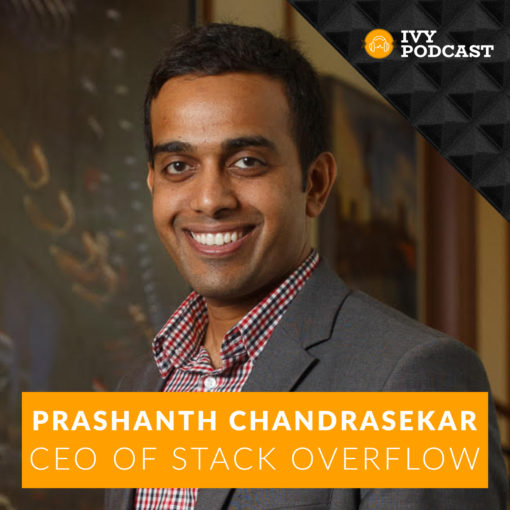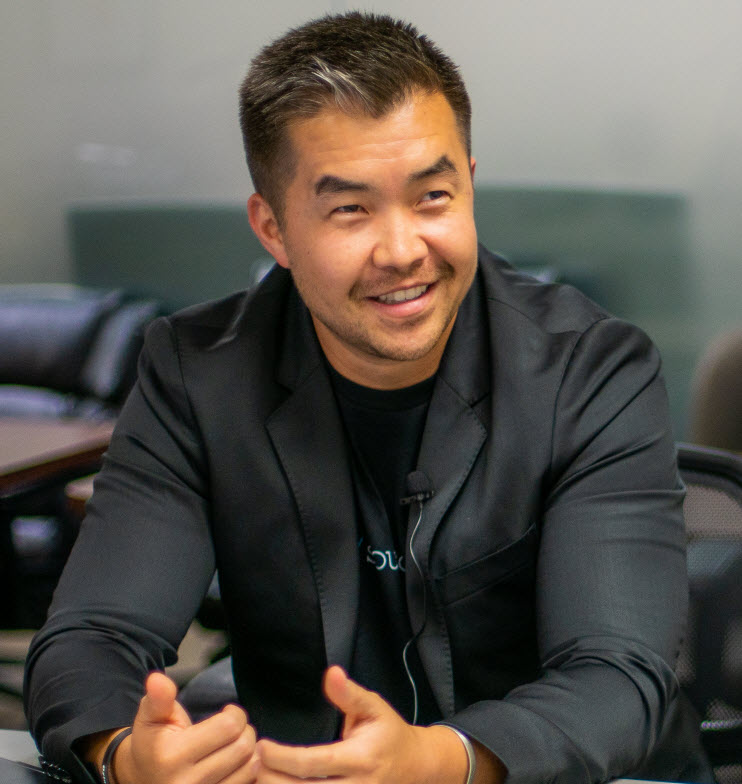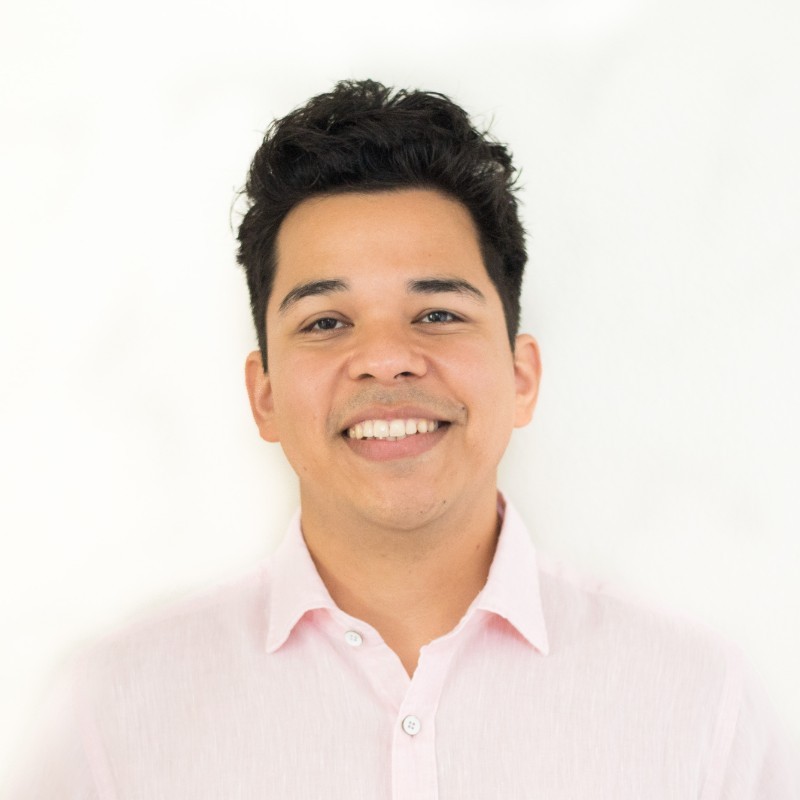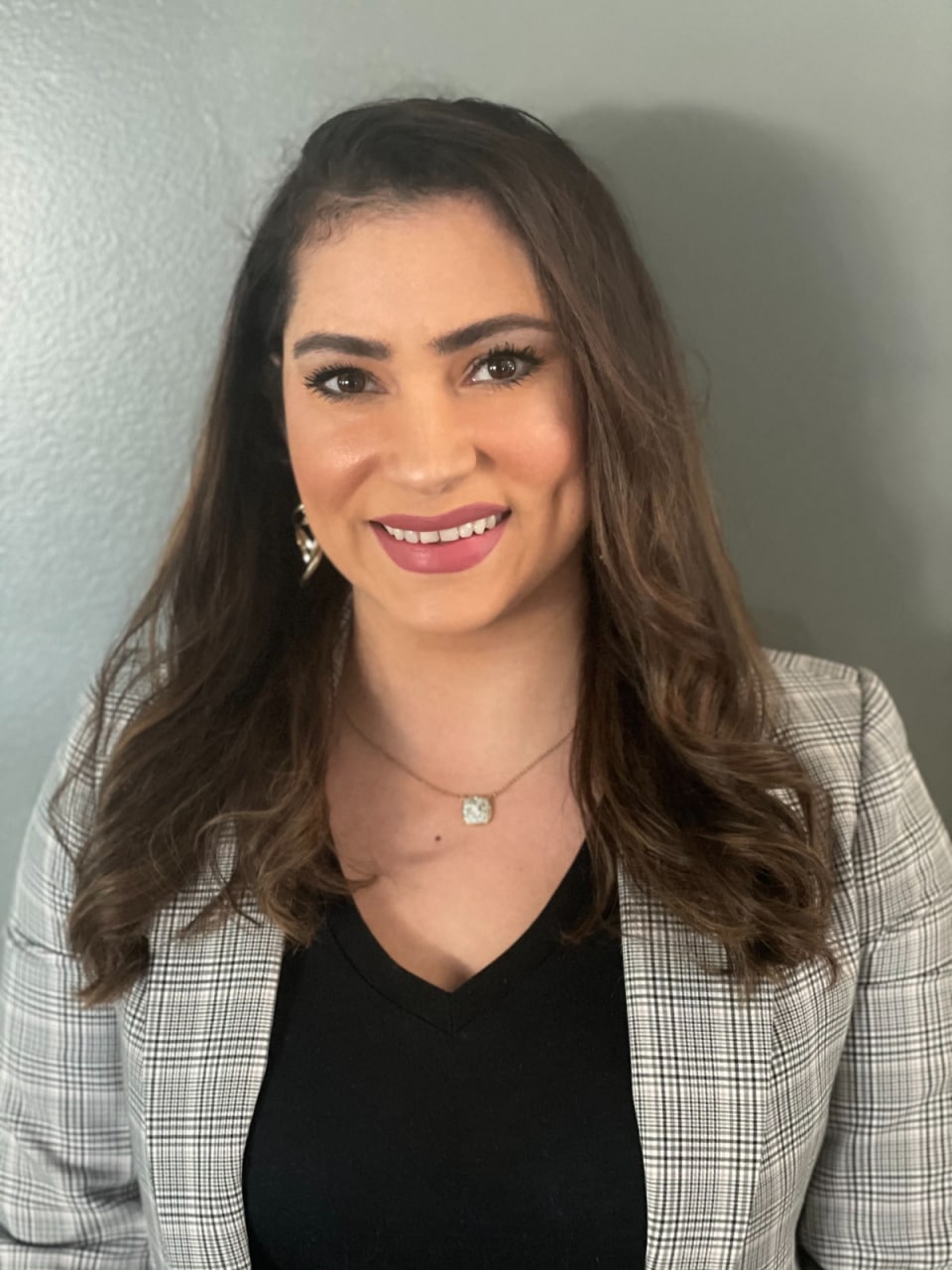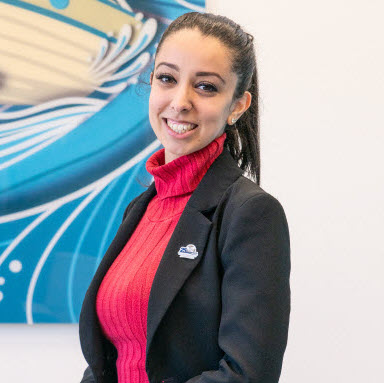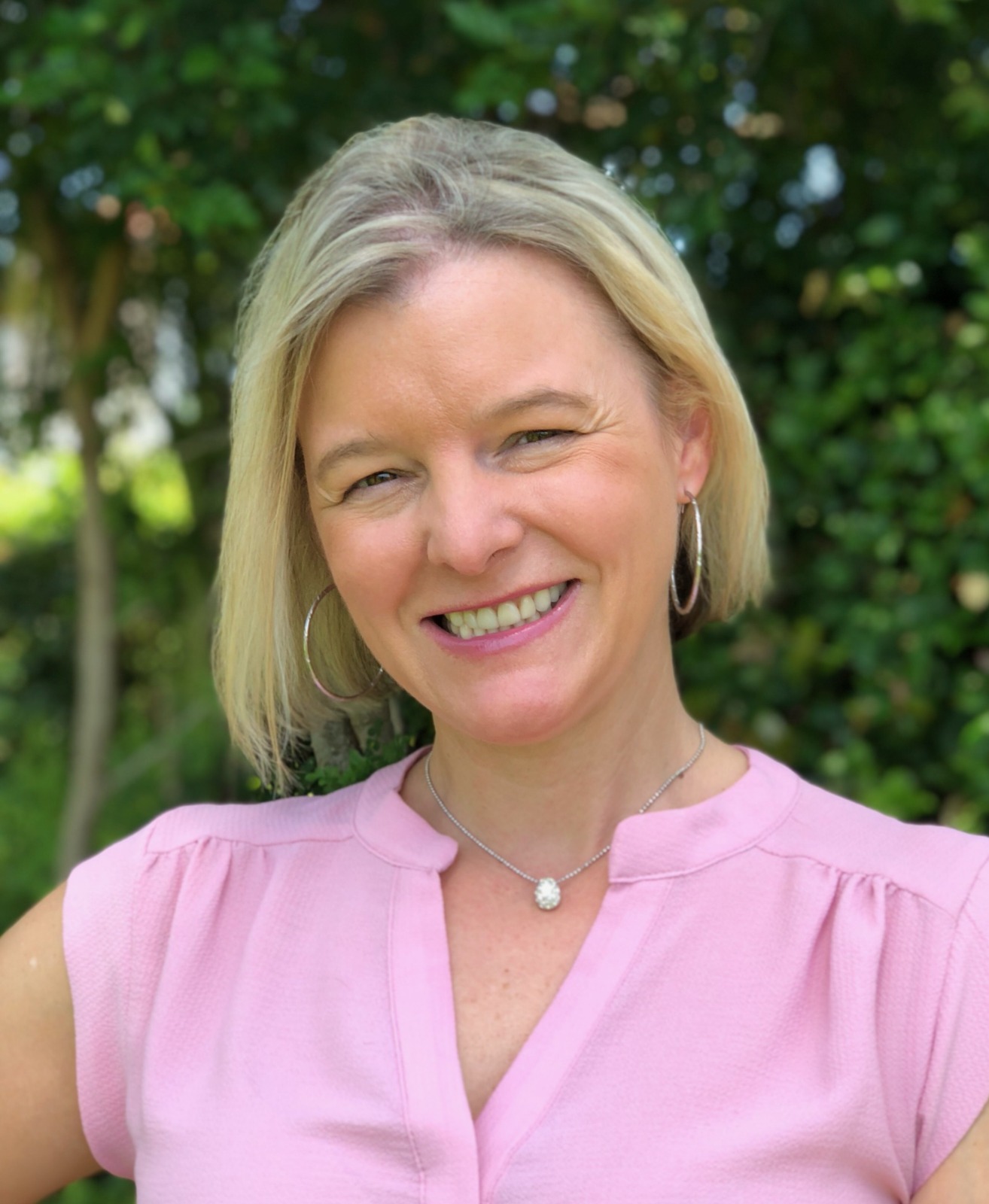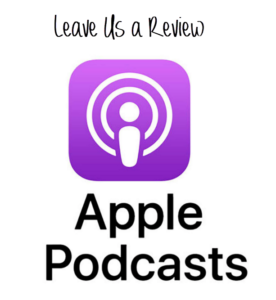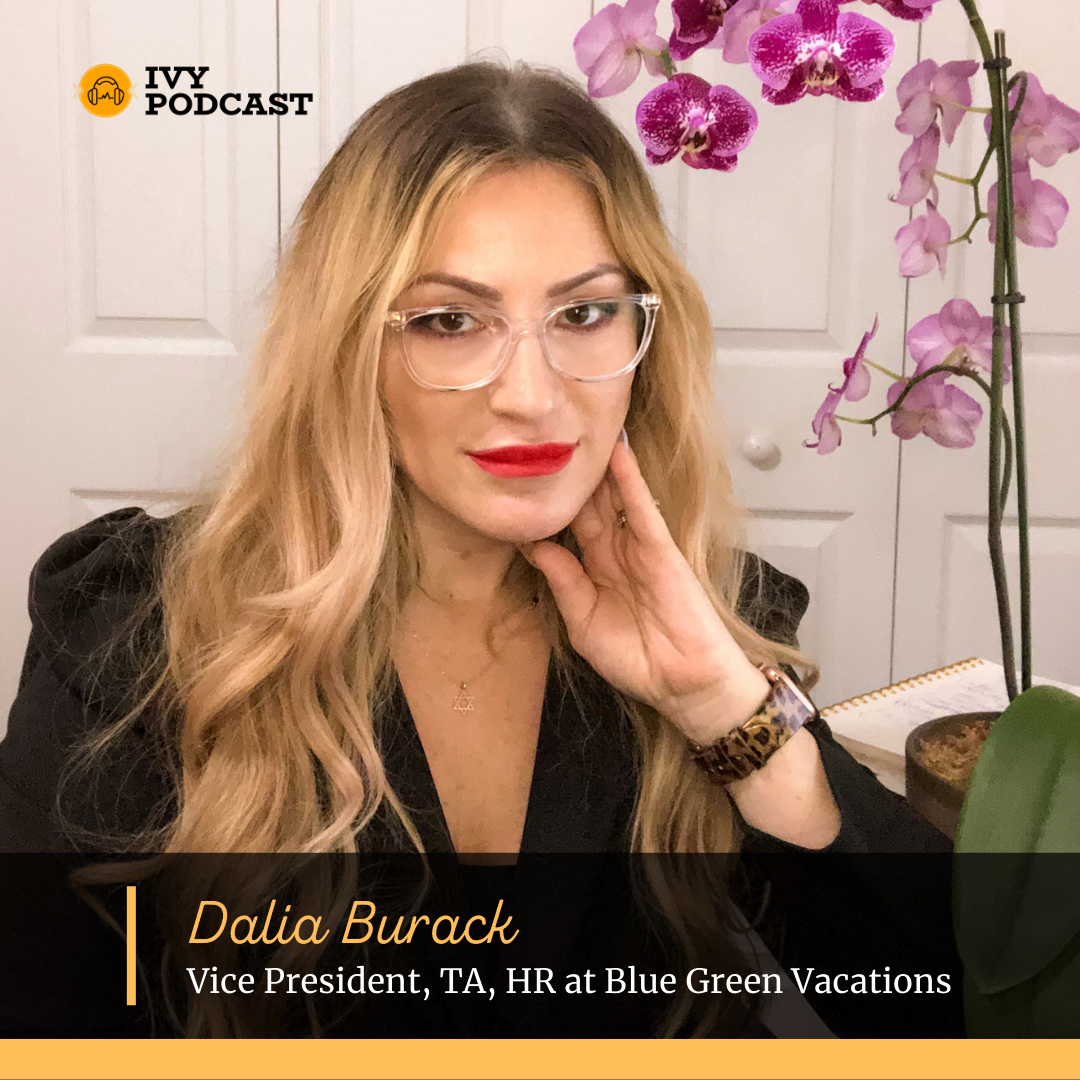
Dalia Burack is an inspirational, servant leader focused on guiding others to seek out their full potential. Motivated by optimism, results, and making impactful decisions, a subject matter expert and thought leader on all things talent. A natural project manager, a mover of initiatives and a creative thinker who’s not afraid to disrupt the status-quo. With a proven track record of over 25 years in Talent Management, a robust business acumen, and an earned reputation for integrity, consistent performance and commitment to excellence.
A motivational champion of change and possibilities, recognized for expertise in talent attraction and acquisition, sourcing strategies, assessment & selection, and on-boarding. An active senior leader and HR technology disruptor, laser focused on employer reputation/value proposition, business process improvement, and winning the applicant experience.
Episode transcription:
D: My name is Dalia Burack and I head Talent Acquisition at Bluegreen Vacation, a vacation ownership company. And I've been with the company for about 13 years. J: Dalia, thanks so much for finding time to join us on the podcast today, especially during the holidays really appreciate you finding time. Can you tell us a little bit more about your background? Where do you come from? Career-wise, career path. What's the kind of world did you start? And then I'd like to spend some time talking to me a little bit about your work. D: Sure. Thank you. So I started out my career quite early in a recruitment office for a third party service provider contact center solution. Then this was back in the late nineties where we were faxing, you know, background checks to Wells Fargo at the time and seeing 300 people a day and it was insanity, but I started out without really knowing anything about positions or human resources, but that monitor was related to a 10 goal. I mean, I got kind of thrown into the craziness really. And from there, I had an opportunity to really stay with that company for a long time, develop. I had great mentors. People helped me learn about all things, talent acquisition, but I feel like I grew up at a time in my career where talent acquisition was heavily evolving. And so even though we were already in the information age, it was very early. Everything that has transpired over the last 10 to 15 years has been just a complete change from where things started. But once I was already in my role, I decided to go to get my undergrad and focus on human resource management. J: Well, that's, that's exciting. And, you know, you mentioned something around faxing, the background checks and the resume, something that the CEO of our company, Cesar, he talks a lot about those days where I think he had to like fax resumes to the hiring managers or something. I mean, many people I work with don't know what a fax machine is. So it definitely beats me, but I feel like it definitely builds character in my evolution as an IT professional, for sure. Right. Yeah. Absolutely. If you were able to succeed then, you know, knowledge you would have these days, I think walking apart is a cake. So tell us a little bit more about your current role, what falls under your purview and maybe a little bit about the organization? D: Sure. So, as I said, I worked for blue-green vacations and I had uptown acquisition. So my scope of responsibilities is overseeing, and developing and executing on strategy on all things, talent acquisition for the entire organization. So our company is a travel and hospitality company. More specifically, we have over 60 resorts and 230 plus thousand owners that own property with us. And we put people on vacation is really what we do. And we really, our entire product offering is very experiential based. So what my role entails is really all of our talent acquisition needs throughout the organization. And that encompasses everything that we do on the national sales and marketing side. So heavy on the sales, and marketing, everything that we do on the resort operations side. So having on the service side, and then of course having on the support side, being all the traditional sort of corporate entities that you can think of, you know, information technology and human resources and legal and all of those entities. J: That's great. And, you know, that's super exciting. It brings me, you know, to one gentleman that I recently interviewed,he's the CEO of, Westgate resorts. It's a, you know, you guys, in the based site, I would love to do an executive round table panel sometime in the future with both of you guys on the panel, because, primarily his name is Mark Waltrip and he's, you know, outstanding professional. He's been in this space like yourself, where, you know, for a few years and a lot of experience, and I would love to put together the kind of the roundtable. We'll talk about the different strategies that work for you guys, what you know is not only from talent acquisition perspective, but how the industry in general is, you know, what are the challenges? What are the different innovation strategies you have? So definitely looking forward to. So when, you know, when we talk about different trends and ideas that excite you. I’m very entrepreneurial myself and I talked to a lot of founders of different startups and we talk a lot about different ideas and latest trends in different industries. Curious to pick your brain from that standpoint, what are the different trends that excite you the most? These days? It doesn't necessarily have to be in talent, acquisition or tourism, just in general, what are you researching? What are you reading daily about? What do you think is the next big thing? D: Gotcha. This would probably apply to both my industry or our industry, but just in general. Ыo the concept of a hundred percent virtual hiring is definitely a hot topic right now, obviously, because of the pandemic and where that sort of moved us. But it's fascinating because, you know, on the surface it appears that what you're doing is shifting from one way to execute a process to a different way. One is, you know, brick and mortar versus virtual, but the reality is you really have to almost relearn the candidate behavior when you're trick, when you're transitioning from one to the other. So that's been really interesting to understand and to learn together because no one really understood it on quite as much as they do now. So one hot topic for us is definitely virtual hiring. In our world, we have to do some of that. We have to transition to virtual hiring, but what's interesting is some of our talent needs can not be virtually based or remote based. So we still are in the process of hiring for roles, for example, or service roles that the resorts have to be in person. There needs to be some. So it's also moving to a virtual platform to source, select and onboard talent for jobs that are actually physical in nature. It's really been an interesting kind of paradigm. That's definitely one hot topic. The other one that I'm completely enveloped in remote work. Right. So it's in me, you know, and I will say I'm just a natural optimist. So I do tend to see the sort of the glass half full. But then to me, you know, we're two days away from the end of the year and the absolute number one takes the cake. Biggest silver lining for 2020 is the society misses the societal and business transition to sort of stigmatizing remote work. Right. And I came from an environment where for some of our jobs, it was just not really an option and so we were thrown into this situation quite literally and came out with flying colors, thanks to a lot of really great disciplined and trustworthy people. But for me, the reason that the silver lining, there's a couple of reasons why remote work is a hot topic for me. Number one is it has made our existence at the talent acquisition team just a lot more relaxed, flexible, adaptable. Number one, you're not in this confine of you have to be here and at this time, and this is where you need to do it, and I find that a lot of our tonic position professionals or they're creative people, you know, they want to be boxed in. Right. So, um, you know, and the types of individuals that I bring into art that we bring into our teams are people that, you know, I always say to them, you can do your work from Thailand. I quite don't really care as long as you do what you need to do. That's really all that matters. So remote work is a big deal, but what is the other impact that has had on us for the role that we can hire remotely is it is opened up our talent pool tremendously. Right? So in some situations where we've had some specialized roles that we've had to bring in leadership roles, where we traditionally would have had to relocate them or look for someone locally that is really changed the dynamic, and has made it more available to us to reach people who maybe don't want to relocate, but really want the job, you know, and really want to be part of the company. So one of the things that I've taken over post COVID is facilitating new hire orientation for all of our associates at the leadership level. And it's been really interesting to see onboarding associates that are not where they traditionally would be kind of all over the place and not very new for us. So remote work is a really big deal, especially because of the way to impact our ability to reach a bigger and more diverse talent pool. J: Right. I love these. I love these trends, these ideas that you're talking about definitely makes sense and definitely relevant to the current times and something that, you know, you mentioned, which resonated really well with me. I spent a lot of time talking to executives on a daily basis, different organizations, various sites, and one thing that really has been kind of, you know, standing out lately is from a leadership perspective is okay. I started at a job, let's say I'm a, mid-level, you know, software engineer and everything is remote. Everything is, you know, I'm not meeting people. I have my Slack channel with my little team and from an executive perspective, the questions kind of all the topics we've been discussing a lot lately is how do you, how do you almost create this platform or environment for people to, you know, to collaborate and meet folks in completely different divisions or completely outside of your functional area, because in the pre COVID world, you could always walk up to somebody, you could meet somebody and it was completely different. But now these days, it's where you're sitting remote and it's almost a challenge. Like what are you going to go and ping somebody on Slack and say, Oh, hello, I'm a, I'm a new employee, and I want to meet new people is completely different. And I want to get your perspective from that leadership standpoint. How do you foster that environment that really promotes that ability to freely reach out to somebody outside of your area outside of York? You know, team and really feel, you know, almost like in the pre COVID world, to be able to walk up to somebody. So just curious, cause I mean, you're a professional in this space from talent acquisition onboarding, all of that. What's your take on that? I don't know if you deal with that a lot lately. D: Yeah, I do. I think it's an interesting conversation for sure. One of the things that I've had to do in 2020 is I've had actually been a true privilege and blessing is I've had an opportunity to grow the talent acquisition team, which is not the usual story you hear during 2020. But in order for us to set ourselves up for success, we were in the process of doing that. And so I've had for the first time, in a long time, I've had to onboard folks remotely for my own team as well. One thing I think that definitely I've noticed now, looking back is, in order to compensate for the lack of the physical sort of, you know, interaction in the cases in which there would be some, I've definitely overcompensated for in the way of onboarded folks. By creating extra touch points. It's interesting, we were an environment that never used cameras ever. We never used video cameras for our interactions, maybe the phone and call somebody and we're really spread out. We operate in like over 48 States. So what's interesting. I've seen more of my team face to face, albeit virtually this year than I ever have before. And I think that is another blessing and I'm kind of going off track a little bit, but another blessing is just this technology bridge that has allowed us to say, you know what? It doesn't matter if you take it on a flight and come see me, it doesn't matter if you can't have a team meeting at the end of the day, the cameras, we can do this. It's all good. You know what I mean? So I do think however, there are, um, to your point, there are multi it's a multifaceted conversation. Yeah. In 2020, when I have had the opportunity to be physically in person with some of either our teams or other individuals, you quickly realize just how much your emotional state misses that face-to-face interaction. And you may not realize it until you're physically there again. So I think we're still all learning how that works best. What's the right way to engage associates. What are the programs? So I think 2021 is going to be about what are the programs, human resources going to focus on developing. For this new sort of workforce environment. And I just think it's still evolving. J: Of course, no, I love that. I'd love to pick your brains, you know, six months, four months into 2021. And, you know, it's a great topic and I understand it is a challenge for a lot of organizations, as far as that employee engagement perspective and because everything being removed completely, shifts the whole dynamic from that standpoint, to shift kind of topics a little bit. I wanna talk a little bit about building that culture of innovation and, you know, fostering that it's something that I'm very passionate about. And, you know, I spend a lot of time analyzing this particular area. And as far as from you being in charge of the whole initial employee experience, the whole onboarding, and then the talent acquisition piece, you know, Innovation, it plays a very important role as part of that, you know, being the overall organization, culture of innovation. So from your standpoint, what are the different strategies or initiatives that you have implemented or something that has not worked well for you or maybe is working well, that really allows you to foster and build that culture of innovation from that very beginning, that initial experience? D: If I think about just for example, our talent acquisition organization, one of the things that I have ensured to do or that I made sure to do rather is in identifying people to join our organization is really looking for a popery of individuals with different backgrounds. Some of which bring a lot of that innovative spirit. I'm not a really big believer in that all teams have to think alike. I think that the diversity of thought is really important. So we have a little bit of everything, so there are a couple of things that I do in order to focus on innovation. Number one is I always lead by example. So I happen to be someone who's progressive in the way that I think about the way we do things. And I like to explore new tools, new technologies, new practices, just innovative and creative ways. A lot of the topics that are underpinned in all of those initiatives have to do with the mystery of the candidates mind, what is the candidate thinking? How can we clairvoyantly predict what this candidate is going to do and what this candidate is going to think? So that's one side of it, but the other side of it is which pairs with it is how can we win? This sort of race around giving the applicants the best possible experience they can have because at the end of the day, I'm a big believer philosophically in that people choose companies, companies don't use people. And so we, you know, approaching things from that angle, maintain this again is the underlying topic of, is it in the best interest of the candidate and is in the best interest of the process. Are they going to ultimately have a better impression of what they're going for. So everything that we do that has to do with innovation always focuses around those, around those things. Another area of innovation that we've been focused on a lot, and I alluded to it a little bit earlier is that recruitment marketing is something that has moved faster and involved faster than maybe technology in and of itself. It's like, consumer marketing took 10 years to get from point A to point Z and recruitment marketing did it in a fraction of the time basically. Right. And kind of caught up to it. Because today, when you really think about recruitment marketing, it's so parallel with consumer marketing, it's virtually the same. Right. But that wasn't always the case and it wasn't always what was understood. So for us, innovation is, you know, how do we inspire people to think. To think bigger, to think differently, to explore, to be inspired by other ideas. We put together a team of, they're not really project teams, but they're almost like specialty teams that within the groups that gives them an outlet and opportunity to deal with different things than just your traditional, you know, end to end recruiting. And lastly, when I talk about lead by example, I'm always instilling this idea that we're not afraid of change and that change can be albeit sometimes difficult. It is a really important part of our story and our evolution. And if we stay still, we're not going to evolve and we're not going to grow. And we're not gonna know that there's more to do or better to do or more efficient or more effective. That's about it for, for innovation. J: Oh, that's great. Thanks for those examples, because at the end of the day, it's, you know, it starts at the top, we're not only talking the talk about walking the walk it's, you know, with creating this environment of autonomy, where your employees feel empowered, not only to bring ideas to the table, but know that they will have leadership attention to at least consider that. And then if that particular idea has legs and you really took the initiative to research and, and put something together. I think that makes a lot of sense from a standpoint of really creating this environment to allow your employees to experiment. So, you know, to take in to kind of think outside the box. So how to improve a particular situation, improve a particular process. So that's very exciting. Thanks for those examples. When we talk about women in leadership and female executives in HR, or, you know, even in IT, very niche areas, it's a highly requested topic, especially here for us on the podcast. And from your standpoint, and being an executive, your organization charge of Talent Acquisition, HR space. What can I know? It's an extremely loaded question and we can talk, we can probably talk into our episode. But it's a challenge for you to think of a way, if you could summarize in some, in some type of, you know, very high level recommendations, for our favorite female listeners, when it comes to career growth work-life balance and what you wish you did during your early stage career that you did not know about that. If you were to do things different than that would be, that would be that. D: Yeah. No, I think it's a great topic. It's a very important topic and I'm very, very honored to be able to contribute. Through my experiences, I think the number one piece of advice I would give all the listeners is to work really, really hard from day one on reducing the noise in your head, because as female leaders and professionals, there’s so much noise going on around us about the things that are going to be obstacles. The perceived obstacle. They're the real obstacles. And so really being able to stay focused through all the noise is one of the biggest pieces of advice because that noise, that often will become your biggest obstacle in your career and your trajectory. The second thing I think that I would give as a piece of advice is to no matter what you're doing, no matter what part of your life you're in professionally, always take a deep and profound interest in the business that you're working in. So being inquisitive, you know, caring beyond your scope of responsibility, really wanting to in time, right in due time, this doesn't happen overnight. But to, you know, to educate yourself enough that you're asking those thought provoking questions and you're having those thoughts of building conversations. I feel in my career, I can say that has given me more opportunity and visibility than not piece of advice alone. I think most of it came somewhat organically, but I think I was also around people that were that way. And so I think I kind of, you know, emulated that same behavior, but I, part of the reason why I'm in tonic was because I have an inquisitive mind and I want to know, and I'm an interviewer by heart. You know, this is what I do. So that's another piece of advice, but then the next one I think would be a huge one is always starting from yes, but understanding and knowing and recognizing when to say no. And that's the big, you know, if you ask the women around the world, they'll all tell you that's been, their biggest challenge is sort of knowing how to balance the plate and how to not over-commit and how to really understand what they're limited, what your limits are. That takes time. It takes time to work through that. But having the attitude and the behavior of starting from yes is a big deal. It's the, it's always making the person on the other and feel like you want to help them. And it's not what you say. It's how you say it and it's what you do and it's your behavior around it. So I think that's a huge, huge, huge one. And lastly, but most importantly is make time. And this is, you asked about, you know, what would I do differently? I think looking back, I would probably, you know, want to build a better balance around the priorities in my life. Right. And so I think that's the biggest challenge people have in women, especially. How do you know when to pick the personal endeavor over the business endeavor? How do you know when it's appropriate to turn down a proposition, you know, work proposition versus, you know, put your family first? And I mean, from the biggest things, the littlest things. So I do know now looking back that, maintaining that balance and being aware of the balance and knowing yourself really well is key to one's ability in which to really be the best version of yourself or your company. So building the balance is a big, big thing beyond paying attention to it. J: Right, right. No, I love this and I appreciate, you know, I realize how challenging the question is from a standpoint of being able to summarize everything in just a couple of bullet points, but that makes sense, you know, appreciate you kind of summarizing and being able to highlight those very important recommendations because something also that stood out in one of my recent interviews, I talked to, the new Chief People Officer at Miami Marlins, her name is Beth Ellenson. And when we talked about this particular topic, she mentioned something from, from a standpoint of also, you know, finding a mentor, finding someone that you look up to and, you know, you’re kind of at least leveraging that opportunity to tap into their experience, kind of leverage that. So I thought that was pretty cool in addition to absolutely. I couldn't agree more. I want to ask a couple of questions from standpoint of the whole, you know, hiring interviewing, because, obviously you're an expert in that when you know, the candidates get in the door, they go through multiple rounds of interviews, prescreening, and all of that great stuff. When they meet with Dahlia, what gives us a glimpse into an interview with you? What does the interview look like? Do you get creative with it? Do you keep it pretty traditional? And more importantly, what do you look for in some other responses when you, when you interview your candidates? D: Yeah, that's a great question. I don't take a formal approach. I take a definitely more low-key conversational approach because what I'm hoping to accomplish through that conversation is I want to really get to know the real person. By the time I'm speaking to somebody it's likely been, you know, they've been vetted out from a technical skillset standpoint and so on until I have that luxury of, you know, especially when I'm hiring for my own team, I'm probably not likely the first conversation that they're having, depending on what level of individual we're bringing in. But that being said, you know, I always joke that one of my least favorite things to do is the hire for my own team, which is just very funny, um, and strange and bizarre, but I think it's because of the weight, it carries to make the decision, right. It carries so much weight and so much impact on my own day-to-day life. But I feel a tremendous amount of pressure. Right. And ultimately I'm very happy in the end, but I do kick and scream a little bit as I go through that process. I don't have a set of traditional questions that I ask, but I will tell you that what is important to me is seeing whether the individual, first of all, do we align philosophically the very, very big component of my conversation? What does that mean? Do we think alike? Do we have the same values relative to how do we view the candidate experience? How do we view the applicant journey? How do we view talent acquisition within the organization? How do we view talent acquisition as it relates to relationships in the business? These are philosophical positions that I, and by the way, it doesn't matter what level individual I'm talking to. Those philosophical types of positions on and the connection of those is really, really important. And I find far more important than technical skills and experience. Those connections are really key. So I'm looking for creative individuals. You know, I'm looking for progressive individuals with collaborative people that have a true passion to help others succeed. I have found that that is a key to building a solid team and not just people will have the drive to succeed themselves, but people who have the humility to help others succeed. And when push comes to shove and when things really get crazy, that those are the kinds of team members you want on a team. You want the team members that are going to help pick up the others that are going to come in and really do the right thing. And those are the factors that I look for. And of course the adaptability and flexibility has always been big, but today more than ever, it's a huge, huge topic. We are in an ever-changing unpredictable environment. So, you know, knowing that and having the agility to be able to shift gears. And to pivot and to say, you know what, today I'm working on this, but tomorrow I'm working on something different and I may not be the happiest to work on that something different, but I'm going to know that it's part of this existence, is something else that I focus on on my interview. J: Oh, I love these. I love these tips and for our listeners, if you're going to be interviewing with Dahlia, there you go. You got some insider information, expect during that interview process. But all jokes aside that's, you know, that makes perfect sense in the sense really keeping the conversation casually. And also it sounds like you really give the opportunity to the candidates, to interview you as well, ask all the questions and also to make that assessment, if that's the right fit for them as well, because that, when you talked about that kind of the, the philosophical mindset into how would, you know, take a particular approach or how do you view the entire trade or this particular industry? I think that's important to align from that perspective. So that's pretty cool. Definitely. Thanks for those steps. And when we talk about the kind of the most in demand skill sets that are very difficult to find whether that's in your industry from a travel hospitality perspective, or even in the talent acquisition space. Curious to get your take on that. What have you seen lately to be kind of that most challenging skillset that's very hard to find? D: Sure. There's several, but I'll start by telling you within the resort operations or the resort hospitality kind of industry, and that space in particular, there are certain rather professions that are dying. When you think about the area of maintenance or engineering, as we call it, so these are your HVAC people, your plumbing and heating people, all things handyman and sort of, you know, repair type of stuff, facilities, maintenance. It is a crop that is slowly dying because. Because people aren't really pursuing those types of careers. And so for us, they're really challenging, because we don't there aren't a lot of people going into those lines of work as young individuals. So the things we do to combat that and to help us are we're focusing on, you know, whenever we can't find the talent, we think about how we can create the talent. So we look at a couple of different things. One is what can we do internally to help foster those types of skillsets? We're looking at different types of training, tracks and programs. That'll help us to provide the training necessary in order to get people to that place. But the second thing we do is where can we influence young individuals to pursue these types of careers? And so we engage with different high school programs to make sure that if we could get into an elementary school and it would be appropriate, we probably would. But really early on, you know, engaging people in understanding why there's such a special aspect to this career, and really making an impact that way. So that's an area for us. Another one is housekeeping is another area that's difficult for us to hire in. Part of the thing with housekeeping is that there is a perception of what housekeeping actually is, and it's incorrect and inaccurate, and so we’re sort of educating the workforce on why housekeeping is a great place to start in confidentiality and some of the most successful. Hotel ears and executives in travel and hospitality came from housekeeping. And so it just has unfortunately a different perception in the workforce. And that's something that we work on as well beyond that there are a lot of high volume areas, right where we challenge. We have a lot of challenges. And so they're different than not being able to find the people. It's more about first of all, very transient kind of workforce and finding the individual that will quote, stick in these commission only sales roles and really was really difficult. And then lastly, you know, these very specialized roles that come up from time to time in our world, whenever we look for someone, for example, in payroll, we have a very complex mural sort of existence with variable pay and a variety of other elements and it's a giant payroll. So for us, you're looking for payroll people is always especially difficult, because of the CHAM system that we have and looking for someone who's going to be an expert in that system. But those are just a few, a few of the challenging positions. J: I can only imagine that them being challenging and on top of that, so you've mentioned something though, that was pretty interesting that you invest a lot of your time and effort into educating the, kind of the audience, the workforce in that particular area, which leads me to another question. What are the different strategies that really help you attract that type of talent? That's very niche. That's very high in demand. I know you guys do an outstanding job on, you know, social media, LinkedIn, you have great campaigns. I've seen them myself. And so just curious to, you know, what can you share with us in terms of leveraging consistently a particular strategy or particular medium or platform that helps you attract that very niche talent? D: What's interesting is, I think the one nail in the coffin, so to speak is, is leveraging the same strategy that keeps working. Because if you get too comfortable with one strategy, you're to being in trouble at that point. So I would say to you, you know, in this case, in the case of these bowls are really challenging, it's really about how multifaceted are we really? And are we really constantly introducing. When I say constantly, I mean, not relatively. Are we constantly thinking about enriching and introducing opportunities for different strategies. But to answer your question more specifically, we've basically done it all and we do it all. So everything from campaigning around associate referrals to educational opportunities, whether it's speaking at specific universities that have programs or high schools that may have an opportunity, to, you know, really trying to understand where these types of towns that individuals hang out and where they spend their time and where do they go, whether it's online or not, and following on, in that way and understanding, and then a lot of it is really, just really under getting into their head. You know, I said it before a little bit in jest, but I really needed that. It's this journey to understand where our job seeker, a specific kind of job seeker, where they are, what they're thinking, how they're thinking. A big part of seeking out the talent and implementing the strategies that will work is really understanding the candidate, the candidate behavior. J: Right, right. No, absolutely. That makes perfect sense. You know, being able to first analyze who's who's the audience and then try and figure out, you know, the medium or the channel or the approach for that. I think that's very smart versus going the other way around and try to go for the assesses, pick up from there I'm pretty sure that's not the most effective. Last but not least, what are you, what are you currently reading or what's a one book that you always recommend to others and why is that? D: So I'm not reading anything right now. But there's a few that I recommend, but one that probably always sticks out is, is Who Moved My Cheese. An oldie, but a goodie, by Spencer Johnson, obviously, you know, one of the reasons why I continue to recommend that book, first of all, it's an easy read. And you don't have to be an incredible reader to really connect. It uses a simple approach to talk about the importance of adapting to change. I think that understanding how to accept, how to cope and how to embrace change for me has been the epicenter of my success. And that's what I truly believe in. So to me, that's why that's the one book and I feel like many times what I come across are people that are when it comes down to it. And when you peel all the layers of the onion off, the issue is this resistance to change. So for me, it's always been this pillar, right? And I know when I read it 20 something years ago, I was like, yeah, this is one that's going to remain for a very, very long time. J: So that's a great recommendation. I read it the same long time ago, but I think it's a great reminder to revisit that, you know, to see what are the different tips and strategies that are highlighted in that book. So great recommendation for our listeners. We'll make that available in the episode notes. I can't thank you enough for your time today. Very short, but very insightful conversation. I look forward to stay in touch with you, and perhaps we could do another episode in the near future to see how much you've changed, how much transpired and what are the different other strategies that you have implemented that're working well for you. So thank you so much. D: Thank you for having me.
Welcome to Ivy Podcast! On this Executive Leadership Podcast we interview top executives from Fortune 500 with a focus on strategy, innovation, negotiation and everything about leadership.
Our Podcast for Executives features Thought Leaders who share practical insights for effective leadership, continuous innovation and strategy execution.
Ivy Podcast is a rapidly growing Executive Podcast, which covers topics like Hiring and Retention Strategies, Talent Acquisition, Innovation, Digital Transformation and much more.
On this Leadership Podcast, you will find conversations with the most accomplished executives from Fortune 100 companies. We aim to cover a broad range of industries and create a learning platform for the most ambitious and high potential professionals who are looking to learn from the most accomplished Executives on this Business Leadership Podcast.






